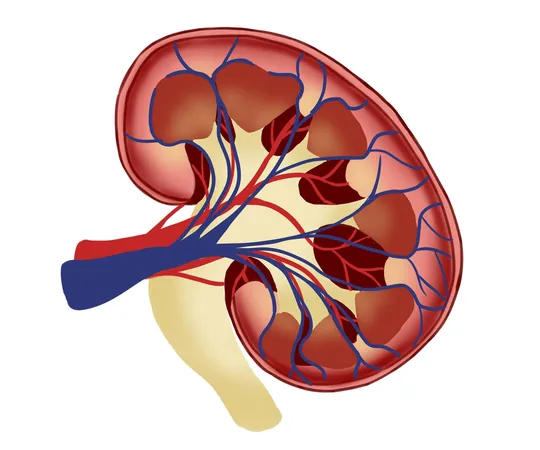
Revolutionary Discovery: Major Genetic Risk Factor for Kidney Disease Uncovered in West Africa!
2024-10-28
Author: Ming
Groundbreaking Research on APOL1 Gene Variants
A groundbreaking study conducted by experts at the National Institutes of Health (NIH) has shed light on a crucial genetic risk factor linked to kidney disease in individuals from Ghana and Nigeria. Researchers found that possessing a single variant in the APOL1 gene can dramatically heighten one's risk for developing kidney disease. This gene plays a vital role in the immune system, and its variants have been previously associated with a higher likelihood of chronic kidney disease.
Published in the esteemed New England Journal of Medicine, this pivotal research is part of the Human Heredity and Health in Africa (H3Africa) Kidney Disease Research Network. Prior studies hinted at APOL1 gene variants being a significant risk factor for African Americans, but little was known about their impact on the ancestral populations in West Africa. Uncovering the relationship between these genomic variants and chronic kidney disease in West Africans provides essential insights that could also inform kidney disease risk assessments for Americans of West African descent.
Insights and Implications
“Our findings will enhance our understanding of how APOL1 variants contribute to chronic kidney disease in West Africans,” says Adebowale A. Adeyemo, M.B.B.S., a co-author and leading figure at NIH’s National Human Genome Research Institute. He emphasizes the potential of genetic knowledge to empower individuals in making informed healthcare decisions, ultimately leading to earlier interventions.
The study involved over 8,000 participants from Ghana and Nigeria, including nearly 5,000 individuals at various stages of chronic kidney disease and over 800 who underwent kidney biopsies that confirmed their diagnosis. Remarkably, the research determined that about one-third of individuals in these nations carry the APOL1 variants—genetic changes that are most frequently observed in people of West African ancestry but are also found in populations across Europe, Asia, and the Americas.
Significant Findings
The researchers also made a striking revelation: possessing just one risk variant (rather than the previously believed two) significantly increases the likelihood of chronic kidney disease—18% for one variant and 25% for two. These variants are also closely linked to a rare kidney condition called focal segmental glomerulosclerosis, marked by serious scarring of kidney tissues.
Diversity and Genetic Ancestries
Dr. Adeyemo notes the importance of recognizing the diversity within genetic ancestries, stating, “Findings are not universal; there’s substantial variation even among similar ethnic groups.” This emphasizes the need for inclusive studies that can ensure genomic medicine benefits everyone.
Impact on Public Health
In the U.S., chronic kidney disease affects more than 1 in 7 adults—approximately 37 million Americans—disproportionately impacting African American, Hispanic American, and Native American communities. Genetics, coupled with environmental and social factors like smoking, diet, and access to healthcare, amplify the risk of kidney disease.
Early stages of kidney disease often go unnoticed, but individuals with diabetes or hypertension face particularly elevated risks. Over time, as kidney function declines, the organ struggles to filter blood properly, leading to dangerous waste accumulation. This progressive deterioration can lead to serious health complications, including strokes and heart attacks.
Broader Implications
This monumental study not only gives voice to a pressing health issue in West Africa but also opens the door to broader implications for kidney disease prevention and treatment worldwide. Now, more than ever, understanding our genetic make-up could be the key to a healthier future!

 Brasil (PT)
Brasil (PT)
 Canada (EN)
Canada (EN)
 Chile (ES)
Chile (ES)
 España (ES)
España (ES)
 France (FR)
France (FR)
 Hong Kong (EN)
Hong Kong (EN)
 Italia (IT)
Italia (IT)
 日本 (JA)
日本 (JA)
 Magyarország (HU)
Magyarország (HU)
 Norge (NO)
Norge (NO)
 Polska (PL)
Polska (PL)
 Schweiz (DE)
Schweiz (DE)
 Singapore (EN)
Singapore (EN)
 Sverige (SV)
Sverige (SV)
 Suomi (FI)
Suomi (FI)
 Türkiye (TR)
Türkiye (TR)